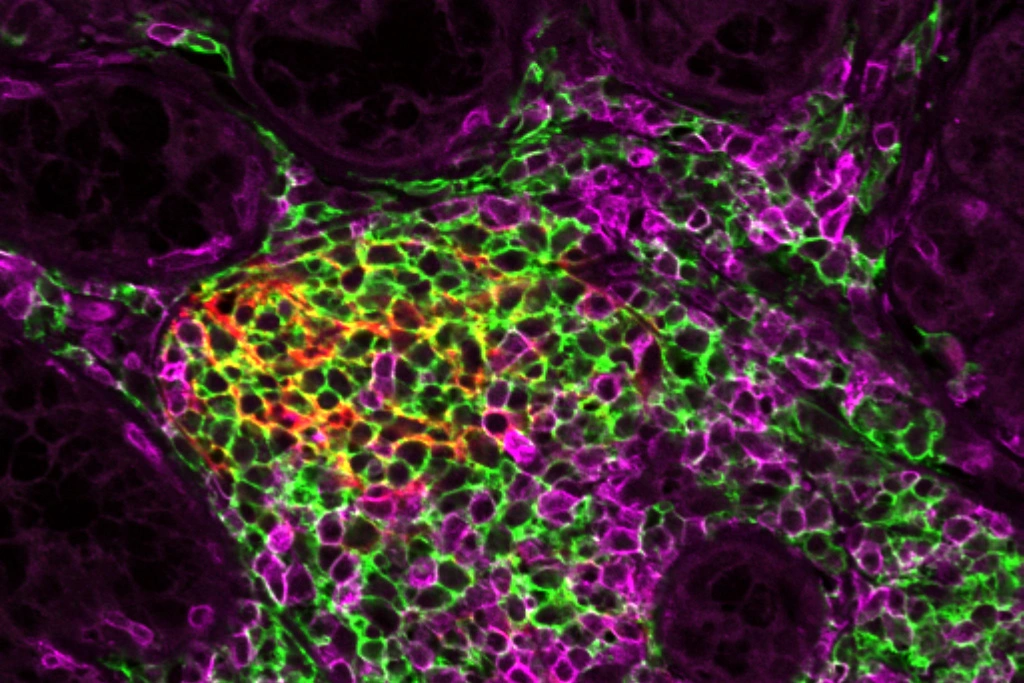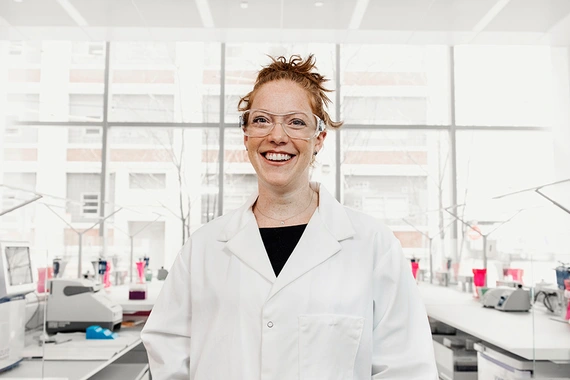Our immune system is essential for protecting us against dangerous pathogens. But in millions of people, the same defenses mistakenly attack healthy tissue and organs, causing debilitating and sometimes lethal illnesses. Autoimmune and inflammatory diseases are often treated with broadly immunosuppressive drugs such as corticosteroids that are only partially effective, can have troubling side effects, and increase the risk of infection. Targeted therapies have improved the standard of care for some of these diseases, but significant unmet need remains across immune mediated inflammatory diseases – particularly, in targeting novel medicines to specific patient subgroups for better efficacy and inducing long-term disease remission without chronic immune suppression.
The Immunology disease area group aims to develop transformative therapies, including small molecules and biotherapeutics, that target the root cause of these diseases by modulating the immune system with the goal of restoring immune homeostasis and health.

Led by Richard Siegel, a group of more than 200 scientists collaborates with clinical and translational researchers using cutting-edge analytical and computational tools and technologies to develop new medicines based on deep understanding of molecular disease pathways in samples from affected patients. This approach allows us to identify dysregulated immune pathways and novel molecular targets in disease pathology and stratify individuals based on treatment response.
Our collaboration with Biomedical Research’s strong technology platforms enables development of novel therapeutics across a wide range of modalities to correct immune dysregulation and eliminate pathogenic cells. Working closely with basic and translational medicine researchers in other disease areas enables use of immune modulatory medicines across clinical specialties.
Our researchers have pioneered groundbreaking treatments for multiple sclerosis, organ transplantation, arthritis and inflammatory skin diseases, autoinflammatory diseases as well as rare genetic immune diseases. In collaboration with many scientists across Biomedical Research, the Immunology research group brought the first inhibitor of the alternative complement pathway to patients in paroxysmal nocturnal hemoglobinuria (PNH) and immune-mediated renal diseases.
The group's current research focuses on these priority areas:
Adaptive Immunity: Our goal is to develop novel therapies to improve the lives of patients affected by B cell- and T cell-mediated diseases like Sjögren's syndrome and Systemic Lupus Erythematosus, as well as other systemic inflammatory and autoimmune disorders. We are focused on rapidly progressing innovative biotherapeutics and personalized cell therapies for these diseases to clinical testing. Beyond this, we are exploring next-generation transformative approaches to modulate B cell and T cell behavior and eliminate pathogenic immune cell subsets.
Immuno-Dermatology: Our mission is to increase the molecular understanding of autoimmune and inflammatory skin diseases to enable the discovery of innovative therapies. Our research focuses on atopic dermatitis, hidradenitis suppurativa, urticarial skin diseases, psoriasis and T-cell mediated autoimmune skin diseases including vitiligo, alopecia areata and lichen planus.
Immuno-Nephrology: Our mission is to discover innovative immune modulatory treatments for patients with acute and chronic kidney diseases such as IgA nephropathy, lupus nephritis, and membranous nephropathy, working closely with DAx scientists who focus on renal parenchymal cell targets.
Innate Immunity: Our goal is to modulate key pathogenic nodes in innate immunity with novel therapeutics, including the inflammasome, complement pathways, and nucleic acid sensors. Collaborating across many Disease Areas, we have established a leading portfolio of inflammasome inhibitors and drug discovery projects that address different aspects of inflammasome activation and result in effective and differentiated new therapies.
Integrated Translational Research: We interconnect pharmacology and clinical sciences through animal models, molecular and functional characterization of patient samples, and data science. Our multidisciplinary approach addresses the molecular basis of inflammatory diseases for biomarker discovery to enable targeted development of new immunological therapeutics towards precision medicine.
